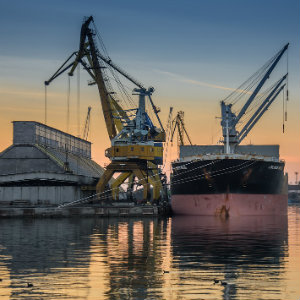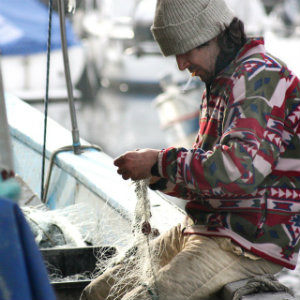Common Maritime Accident Causes
Sea workers face a variety of hazards while onboard. Common causes of accidents which result in Jones Act claims include:
Slips, trips, and falls
Ship decks which are improperly maintained may contain a variety of slipping and tripping hazards. Slippery decks which have gone too long without maintenance, uneven walking elevations, missing guardrails, and obstructions on deck all increase the likelihood of a worker injury. Inadequate lighting also often leads to fall injuries.
Vessel disasters
According to the CDC, vessel disasters are the leading cause of maritime worker deaths. From 2000-2009, 52% of the 504 commercial fishing deaths were caused by a vessel disaster, such as flooding or vessel instability.
Falling overboard
Falls overboard are the second leading cause of commercial fishing deaths, accounting for 31% of fatal work injuries during this period. Missing guardrails, slipping hazards, or carrying excessive weight are all examples of high-risk activities for falls overboard.
Exposure to harmful substances
Many shipping vessels require work to be done in enclosed spaces. When toxic chemicals or fumes are present in a contained space, the worker is at risk of acquiring serious health complications. Additionally, a lack of oxygen in enclosed spaces can cause serious illnesses and death.
Do I Have A Claim?
In order to pursue a claim, you first must qualify as an eligible employee. This isn't too strict - it simply means that you must have been assigned to the vessel you were working on during your injury and that your work requirements were significant to the purpose of the ship.
For example, a worker who was only employed for a specific function on one day of the year may not qualify, but one who spends significant time onboard on a weekly basis definitely would.
Determining Negligence
Next, you must be able to prove that your employer's negligence directly lead to your injuries and subsequent damages. Any act or omission which compromises employee safety may be considered negligent. Common examples of negligence on sea vessels include:
- Improper training - Ship work requires extensive training in the proper use of dangerous equipment. If an employer fails to provide adequate training for all personnel, everyone is at an increased risk of injury. If a coworker was responsible for your injuries, both he and your employer could potentially be held liable because of inadequate training.
- Malfunctioning equipment - Employers have a duty to regularly inspect equipment and order any necessary repairs. Failure to do so drastically increases the risk of an accident onboard.
- Overworking employees - Maritime work is extremely physically demanding. Seamen require breaks in order to recover from strenuous physical activity. Inadequate rest periods can cause accidents and repeated motion injuries such as back and neck strains.
- Inadequate maintenance - Ships must be regularly maintained in order to guard against hazards which could cause injuries.
If you believe that one or more of these negligent actions contributed to your injuries, it's important to discuss the matter with an experienced attorney as quickly as possible.










